The Black Country Community Connectors Project is a collaborative initiative designed to address health inequalities in the Black Country, UK.
The project, a partnership between five community organizations and Macmillan Cancer Support, focuses on improving cancer care and support for ethnically diverse communities.
Understanding Health Inequalities in the Black Country
Health inequalities refer to disparities in health outcomes between different population groups.
These inequalities are driven by social, geographic, biological, and other factors that result in certain groups experiencing poorer health and shorter lifespans.
The Black Country exhibits significant levels of deprivation, particularly in Sandwell and West Birmingham, contributing to disproportionately poor health outcomes.
Key factors contributing to health inequalities in the Black Country include:
-
- Lower Life Expectancy: People in the Black Country have a lower life expectancy compared to the national average and experience fewer years in good health.
-
- Deprivation: The Black Country ranks as the second most deprived area in England, impacting access to resources and quality healthcare.
-
- Ethnic Diversity: The region has a high proportion of ethnic minority communities, many of whom face unique challenges in accessing healthcare.
-
- Low Educational Attainment and Unemployment: These factors contribute to socioeconomic disadvantage, further impacting health outcomes.
-
- Housing Issues: Low income and deprivation often lead to inadequate housing conditions, affecting overall health and well-being.
- Health Conditions: The Black Country has a higher prevalence of certain health issues, such as obesity, which can contribute to poorer health outcomes.
Barriers to Cancer Care for BAME Communities
Research indicates that patients from Black, Asian, and minority ethnic (BAME) backgrounds face inequalities in accessing healthcare services.
Specific barriers include:
-
- Language: Language differences pose a significant challenge to patient access, impacting the patient journey and continuity of care.
-
- Culture: Cultural understanding and competence are crucial for effective healthcare delivery. Differences in beliefs, values, and practices can influence perceptions of health, illness, and treatment-seeking behaviours.
-
- Genetic Health Factors: BAME communities are statistically more likely to have underlying health conditions that can increase their risk of certain cancers and complicate healthcare needs.
-
- Institutional Racism: Structural racism, embedded in policies, practices, and norms, results in differential access to healthcare services and opportunities based on race.
- Population Diversity: The increasing proportion of BAME individuals in the UK, rising from 8% in 2001 to 14% in recent years, highlights the growing need to address health inequalities for diverse populations.
The Project’s Mission and Goals
The Black Country Community Connectors Project seeks to address these multifaceted issues to improve access to services, enhance health outcomes, and improve experiences for all community members.
Key project goals include:
-
- Understanding Disparities: The project aims to gain a deeper understanding of health disparities at the community level, recognizing the unique needs of different ethnic groups and the impact of deprivation.
-
- Improving Data Quality: Collecting robust data is essential to support a comprehensive understanding of health inequalities and inform effective interventions.
-
- Identifying and Addressing Barriers: The project focuses on identifying and dismantling barriers to cancer information, support, screening, and healthcare services.
-
- Challenging Myths and Perceptions: Addressing myths, perceptions, and behaviours related to cancer is crucial for promoting early detection, timely treatment, and positive health outcomes.
-
- Ensuring Timely Access to Care: The project strives to make it easier for individuals to access information, support, and treatment at the right time, improving their chances of successful outcomes.
- Inspiring Wider Change: The project aims to serve as a model for addressing health inequalities in other disadvantaged communities across the UK, providing a blueprint for effective interventions.
Community Engagement: The Heart of the Project
The project recognizes that community involvement is crucial for achieving lasting change. Community Connectors, recruited from within the communities they serve, play a vital role in bridging the gap between communities and healthcare services.
Key aspects of community engagement include:
-
-
- Building Trust: Establishing trust and rapport with communities is paramount to encouraging open communication and collaboration.
-
- Active Listening: Listening to the concerns, beliefs, and experiences of community members provides valuable insights into the unique challenges they face.
-
- Cultural Sensitivity: Respecting cultural differences and valuing diverse perspectives is essential for creating an inclusive and welcoming environment.
- Empowerment: Empowering communities to participate in shaping solutions fosters a sense of ownership and promotes sustainable change.
-
Financial Help for People With Cancer
A cancer diagnosis can be overwhelming. In addition to dealing with the emotional and physical challenges of cancer, many people also face financial difficulties.
The cost of treatment, travel, and time off work can add up quickly.
Fortunately, there is help available. Below, we outline the many resources that can help cancer patients and their families cope with the financial burden of cancer.
Health Costs
-
-
-
- Help with Prescriptions: Prescriptions are free in England for anything related to cancer or its effects. Obtain an FP92A form from your GP surgery and apply for a medical exemption certificate, which lasts for five years and can be renewed.
-
- Help with Wigs and Fabric Supports: Free wigs and fabric supports are available on the NHS in Scotland, Wales, and Northern Ireland. In England, eligibility criteria apply, such as being under 16, being in full-time education, or receiving specific benefits.
-
- Help with the Cost of Dental Care: NHS dental examinations are free in Scotland and available at reduced or free costs under specific criteria in England, Wales, and Northern Ireland.
-
- Help with Eye Treatment: Free eyesight tests are available in Scotland, with similar schemes in England, Wales, and Northern Ireland for those meeting certain criteria, such as being under 16 or receiving specified benefits.
- NHS Low Income Scheme: This scheme assists individuals on low incomes with health costs, such as prescriptions, dental treatment, and travel to receive treatment.
-
-
Help With Home Adaptations, Equipment, and Services
-
-
-
- Equipment to Help You at Home: Doctors and nurses can arrange for equipment like raised toilet seats or handrails. Social services or occupational therapists may also assist with needs assessments.
-
- VAT Exempt Goods and Services: Items like adjustable beds, stair lifts, and medical appliances are VAT-exempt for individuals with long-term illnesses or disabilities.
- Nursing Home Charges: Check if you qualify for financial help, such as NHS continuing healthcare, for ongoing complex care needs.
-
-
- You can find out more details about the various help available on the Macmillan’s website – Health Costs
Macmillan Support Line
The Macmillan Support Line offers free and confidential support for people living with cancer and their loved ones. Call 0808 808 00 00 between 8 a.m. and 8 p.m. for assistance.
Other Organizations That Offer Support
-
-
-
- Turn2us: A national charity that helps people in financial need, offering a grants search tool and direct financial assistance.
-
- Disability Grants: A directory of grants and discounts for disabled adults and children.
- The Carers Trust: A charity supporting unpaid carers, with information about grants and financial aid.
-
-
How the LA Flex Scheme Can Help People with Cancer
The LA Flex scheme is an extension of the UK government’s Energy Company Obligation (ECO) scheme, designed to help residents make their homes more energy efficient.
This can be especially beneficial for individuals with cancer who face increased energy costs due to spending more time at home.
Benefits of the LA Flex Scheme:
-
-
-
- Reduce Energy Bills: Improving home insulation helps lower energy consumption, reducing bills for individuals with cancer.
-
- Improve Comfort and Wellbeing: A well-insulated home ensures stable temperatures, enhancing comfort for those undergoing cancer treatment.
-
- Reduce Financial Strain: By covering the costs of energy efficiency upgrades, the scheme alleviates financial pressure.
-
- Address Health-Related Eligibility: Some local authorities include health-related eligibility criteria, which may make individuals with cancer eligible for assistance.
-
-
Eligibility for the program includes factors such as income, health or vulnerability status, and energy performance ratings of homes.






